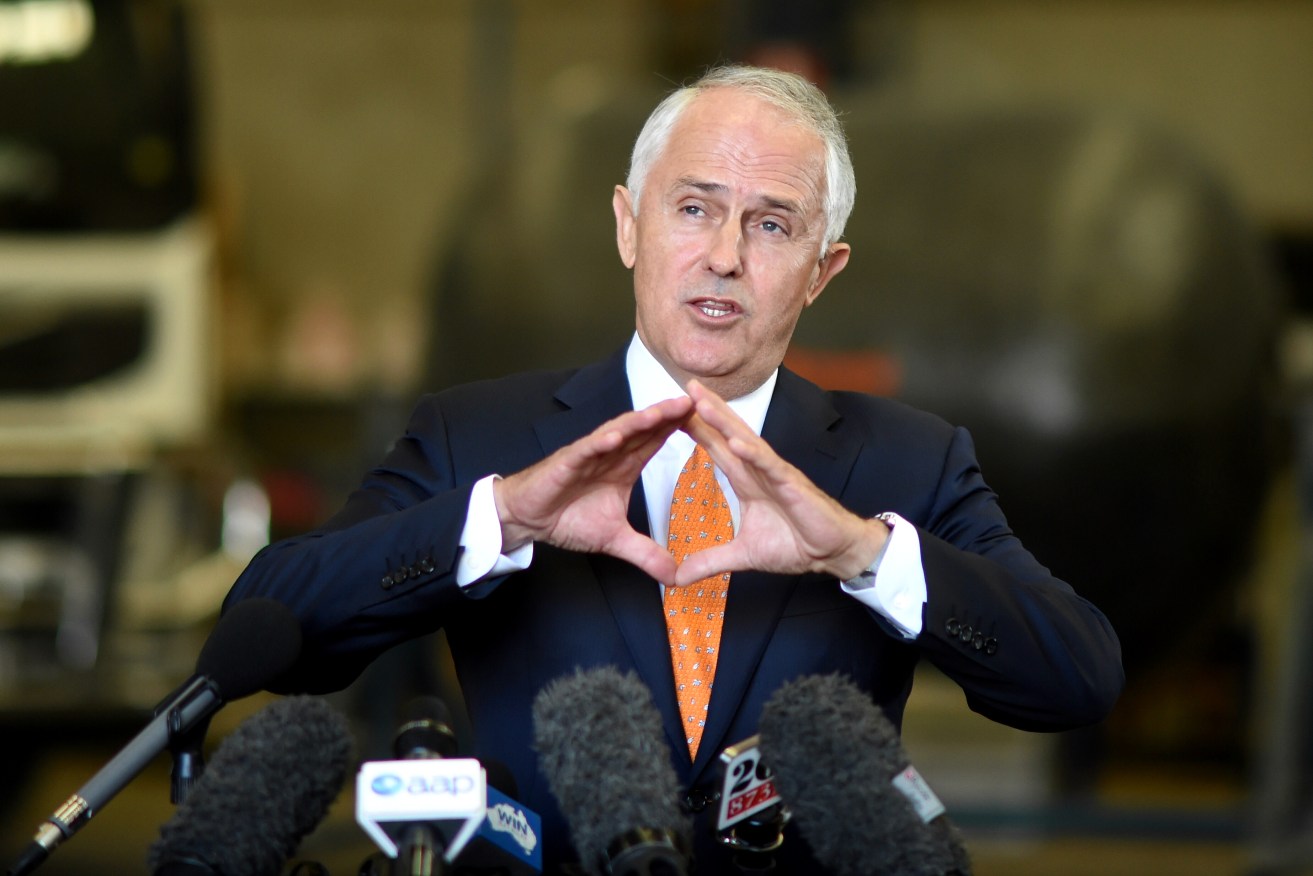Turnbull term – it’s going to be a fast and furious ride
Many factors are pointing to a short term for Malcolm Turnbull, as the Prime Minister faces rumblings in his own ranks as well as a tumultuous Senate, writes Paul Osborne.

Prime Minister Malcolm Turnbull. Photo: AAP/Lukas Coch
Much of the political focus has been on what the new Senate will mean for the Turnbull Government.
But it’s the lower house that could cause the greatest grief.
With a two-week recount under way in the final seat of Herbert, the Coalition looks set to have 76 members – or 77 if Ewen Jones holds his north Queensland electorate.
That doesn’t leave a lot of room to move for Malcolm Turnbull.
He has put in the hard yards – holding initial talks with crossbenchers Andrew Wilkie, Cathy McGowan and Bob Katter.
But it’s the disgruntled few within his own ranks the Prime Minister will need to worry about.
Queensland MP George Christensen has been outspoken on many matters since he was first elected to his seat of Dawson in 2010.
This election he took up the fight against resettling Syrian refugees in north Queensland because they would take away jobs from locals at a time of high unemployment.
He has threatened to quit over the backpacker tax, which is the subject of a review but not completely off the Government’s agenda.
He has also spoken out against changes to superannuation policy outlined in the May budget and flagged he could cross the floor if the policy is not modified.
Turnbull has already told Coalition MPs the policy will be re-examined in the wake of some unrest about it, but only in terms of its “transitional and implementation issues”.
Treasurer Scott Morrison is opposed to any major change to what he detailed in the budget, especially as it would mean having to find savings elsewhere.
Taking some tax concessions off the wealthiest superannuants, who are using their savings more for wealth accumulation than retirement incomes, appeared to be a no-brainer at budget time.
But it’s become a proxy for disenchantment with Turnbull’s leadership and tin ear to conservative issues.
Both Christensen and South Australian Senator Cory Bernardi are promoting new “conservative movements”, but remaining within the Liberal-National fold.
Where they are heading is unclear.
Should Christensen quit the Coalition, having 75 members would put Turnbull in minority government, which would have seismic consequences.
The PM would need to negotiate an agreement with the crossbench to provide stability and be able to tell the governor-general the government is guaranteed supply and confidence.
A snap by-election is also not out of the question.
Over the past 15 years there has been a by-election on average every 18 months, either through retirement or the death of an MP.
Ex-leaders have been common mid-term retirees.
But former prime minister Tony Abbott has vowed to serve a full term, having been re-elected to his Sydney seat of Warringah.
MP scandals are not uncommon and Labor is likely to play hardball over the coming term, knowing how close it is to regaining the treasury benches.
A Labor or independent win in a by-election in a previously Coalition-held seat would put pressure on the Prime Minister.
In any case, the clock is already ticking for the Turnbull Government, which won’t be able to run the full three years.
Bob Hawke went to the polls in March 1990 having won the last double dissolution election in July 1987.
At the very latest, Turnbull will have to go to the polls by mid-May 2019.
The three-year term of half the new Senate ends on June 30, 2019. The electoral commission will need six weeks to count the Senate vote, putting the election date no later than May.
If Turnbull wants to go to the polls in March 2019 he would need to get the NSW Government to shift its fixed four-year election date, which is an available option under state electoral law.
A November 2018 federal election could require Victoria to change its poll date.
With so many factors at play, it’s going to a fast and furious ride.
-AAP




